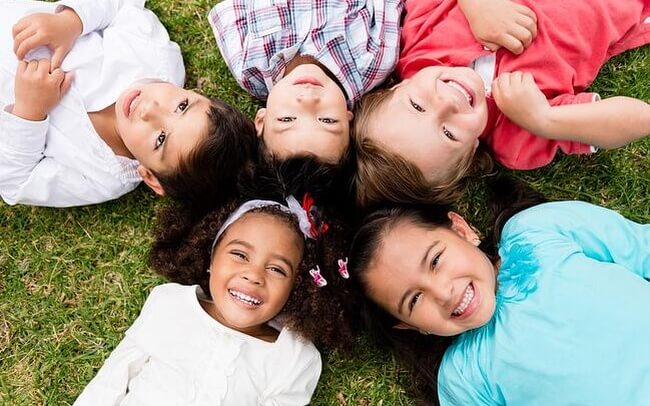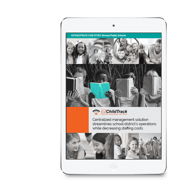
The children and teenagers that attend your after school care facility must be kept safe at all times. Accidents are not always avoidable but most safety issues can be determined ahead of time and corrective and preventive action taken to ensure nobody gets hurt or becomes ill at your aftercare facility.
Prevention begins with you. You set the policy for all safety and health-related matters, including those required by your state licensing agency. However, running an after school care program that exceeds those requirements can make an awesome business differentiator.
Here are several tips for protecting the children in your after school center.
Ensure Adequate Supervision
The one sure way to protect children is to provide supervision commensurate with their age. For smaller children and babies that translates into caregiver-to-child ratios of one to three. Older children who are more self-sufficient and trustworthy don't need supervision at that level, so the ratio of caregiver-to-children is reduced.
For example, older toddlers should have a ratio of one to six and preschool-aged children can be adequately supervised with a ratio of one to nine.
Smaller children should remain in sight at all times, particularly during transition times. With more movement, there is a greater chance a small child could slip away or get lost.
Staff Training
Health and safety training are imperative for a safe environment. Your staff may need to be certified in certain activities depending on the requirements for licensing in your state. A background check may also be mandatory.
- Develop a health and safety manual and provide regular training.
- Observe the staff to ensure they are following their training.
- Ask for copies of the staff’s first aid and CPR certifications.
- Make sure there is always at least one adult with first aid and CPR training on duty.
Besides health and safety training, you may wish to include adults with specialized education in early childhood development as well as assistants to help the children through their day.
Tracking Health and Illness with Childcare Software
It seems rare to have an entire after school care group with no health issues. Colds and flu are common throughout the school year. Before school begins, implement a health and safety program that outlines when children should stay out of school and under which situations they may be sent home.
Also, you may have students with chronic conditions who require medications.
- Ask parents to give the children medicine at home if at all possible.
- If the child requires one or more doses while in care, ask the parent to bring the medication in its original container with dosing instructions.
- Ask parents about any allergies their children may have and make it part of the record.
- Remind staff about the need to administer medication.
If you or your staff are required to administer medication, request a written parental authorization along with the medication and make sure the dose the parent suggests matches that on the container.
Train your staff in medication storage, handling, and administration and review the training periodically. All immunizations should be kept on file, which can be done easily with a childcare management software.
You should take further steps to protect the children’s health as well as that of your staff. Promote and enforce stringent handwashing, particularly after using the restroom and before and after handling food. Children should wash their hands often, including after blowing their noses or if their hands appear dirty.
While sunscreen is not medication, you may wish to ask parents to furnish their children with a preferred brand or type. Also, ask if the child is allergic to any sunscreen ingredients before use.
Play Areas and Toy Safety
Children are most likely to get hurt on the playground, but you must also monitor toy and equipment recalls. Manufacturers are not required to test their products so a recall may not be issued until a problem occurs.
- Discard toys and equipment that is no longer in working order, or that has sharp edges or points.
- Make sure there are no tripping or choking hazards in the playground or other play areas.
- Keep the surfaces in good condition and make periodic inspections.
- Create separate areas for younger and older children with secure gates or fences.
All toys and surfaces should be cleaned and disinfected daily to reduce the transmission of germs.
Emergency Preparedness
Every state in the country can have extreme weather; several states also have active seismic regions. As always, there is the threat of fire. Your aftercare facility should have an emergency preparedness plan that includes how parents will be notified and what the staff and children should do for each type of emergency.
- Regularly update your emergency plan and hold fire drills, lock-down drills, and other activities, so staff and children are familiar with what to do in each situation.
- Regularly inspect fire extinguishers and smoke detectors. Change the batteries in the smoke detectors at the change to and from daylight savings time or at least twice a year.
- Have a weather radio and emergency supply kit available at all times.
- Inform parents of the emergency plan as well as what to do if the school is closed due to ice or snow.
Keep a log of all practices and drills. Require identification from anyone who wishes to enter the building.
Poisons and Toxins
Accidental poisoning is a leading cause of injury and death among small children. All toxic substances from bleach to medications should be kept locked away and out of reach of the children.
- Store all labeled medications, cleaning products, and hazardous materials locked in childproof cabinets.
- Food and cleaning supplies should never be stored in the same place.
- Have the number for the poison control center taped to all phones and entered into all mobile devices.
Avoid using laundry or dish soap packets that look like candy. Keep all detergents locked in a childproof cabinet but take the extra step of using a detergent that looks less inviting to eat.
After school care facilities enroll children as young as three or four, an age where close supervision is still required. As children get older, less supervision is needed as they are less likely to get into trouble.
In any case, your facility should have a written health and safety policy as well as an emergency preparedness plan. Keep the environment clean and free of clutter, and eliminate broken or recalled toys and equipment.
Safety in any industry is job number one. In childcare, it is imperative.




